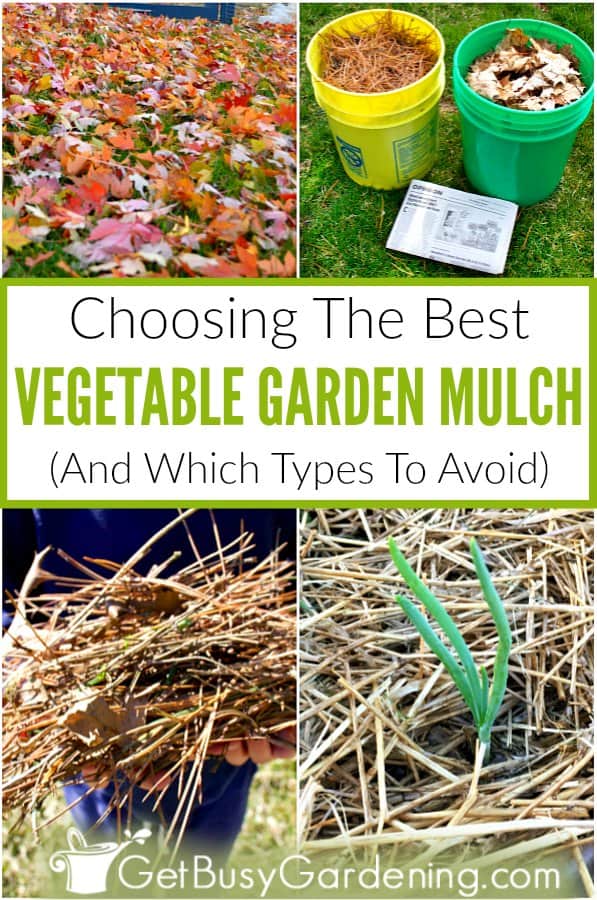How to Choose the Best Mulch for Winter Vegetable Gardens

As the days grow shorter and the air crisper, it's time to prepare your vegetable garden for the winter months. Imagine your garden as a cozy home for your plants, and mulch as the insulating blanket that keeps them snug and protected. Choosing the best mulch for winter vegetable gardens is crucial for plant protection and soil insulation. Let's dive into the world of winter mulching and explore how to make the right choice for your garden.
Understanding Winter Mulching
Winter mulching is a vital aspect of garden care, offering a myriad of benefits. It helps regulate soil temperature, retains moisture, suppresses weeds, and prevents soil erosion. Moreover, it provides a safe haven for beneficial insects and microorganisms. But with so many mulch types available, how do you choose the best one for your winter vegetable garden?
Factors to Consider When Choosing Winter Mulch
Climate
First and foremost, consider your climate. In colder regions, a thick layer of organic mulch can provide much-needed soil insulation. Conversely, in milder winter areas, a lighter mulch may be sufficient.
Soil Type
The type of soil in your garden also plays a significant role. For instance, sandy soils benefit from mulches that break down quickly, adding organic matter. On the other hand, clay soils may need mulch that improves drainage.
Plant Types
Different plants have different needs. Some vegetables prefer a warm, cozy environment, while others thrive in cooler conditions. Research your plants' preferences to make an informed decision.
Exploring Different Mulch Types
Organic Mulches
Organic mulches are derived from natural materials and are popular for winter vegetable gardens due to their insulating properties. They include:
- Straw and Hay: These are excellent for insulation and are relatively inexpensive. However, ensure they are weed and seed-free to avoid introducing pests into your garden.

- Wood Chips and Bark: These provide good insulation and last longer than straw or hay. They are best suited for perennial vegetables as they can rob nitrogen from the soil as they decompose.
- Leaves: Shredded leaves make excellent mulch. They insulate well and improve soil structure as they break down.
- Pine Needles: These are great for acid-loving plants like blueberries. They allow water to pass through easily and don't compact like other mulches.
Inorganic Mulches
Inorganic mulches, while not as popular for winter vegetable gardens, have their uses:
- Plastic Mulch: This can warm the soil and suppress weeds, but it doesn't provide insulation and can prevent water from reaching the soil.
- Landscape Fabric: This allows water and air to pass through but doesn't offer insulation. It's best used in combination with another mulch.
Applying Winter Mulch
Once you've chosen the best mulch for your winter vegetable garden, it's time to apply it. Here are some tips:
- Timing: Apply mulch after the first hard frost but before the ground freezes. This ensures your plants are dormant and won't be stimulated into new growth.
- Depth: Aim for a layer 2-4 inches deep. Too thin, and it won't insulate. Too thick, and it can smother your plants.
- Placement: Spread the mulch evenly, ensuring it doesn't touch the stems of your plants to prevent rot.
Additional Resources
For more information on winter mulching, check out these authoritative resources:
Conclusion
Choosing the best mulch for winter vegetable gardens is like tucking your plants in with a warm, cozy blanket. It's about understanding your garden's needs and selecting the right materials to meet those needs. By considering your climate, soil type, and plants, you can make an informed decision that will protect your garden throughout the winter. So, are you ready to give your garden the care it deserves? Your plants are counting on you!
FAQs
Can I use grass clippings as winter mulch?
- While grass clippings can be used as mulch, they tend to mat and prevent water from reaching the soil. They also decompose quickly and may not provide enough insulation for winter.
Should I remove mulch in the spring?
- It depends on the type of mulch. Organic mulches can be tilled into the soil to add organic matter. Inorganic mulches should be removed.
Can I use mulch to protect my garden from frost?
- Mulch can provide some protection from light frosts, but it won't prevent hard freezes. It's best used for insulation and soil health.
How often should I replace organic mulch?
- Organic mulches break down over time and need to be replenished. This could be annually or every few years, depending on the type of mulch.
Can I use compost as mulch?
- Compost can be used as a thin mulch layer, but it's best used as a soil amendment. It doesn't provide the same level of insulation as other mulches.

- Compost can be used as a thin mulch layer, but it's best used as a soil amendment. It doesn't provide the same level of insulation as other mulches.
0 Response to "How to Choose the Best Mulch for Winter Vegetable Gardens"
Post a Comment